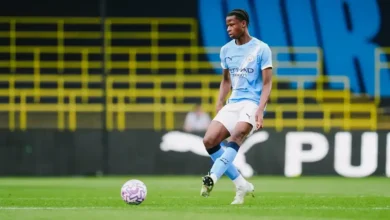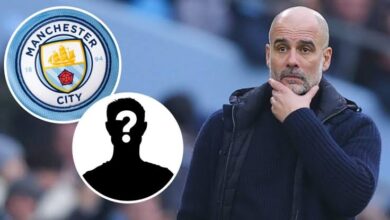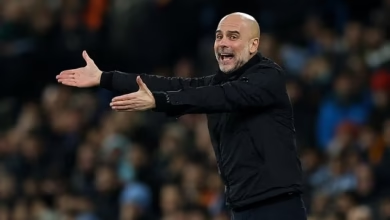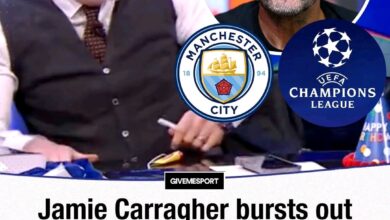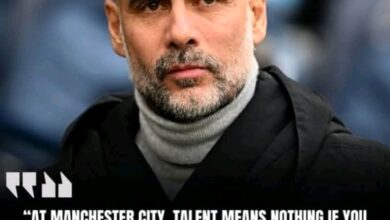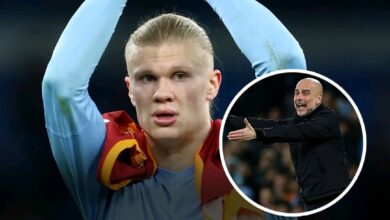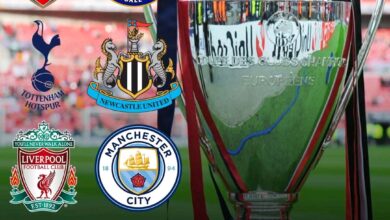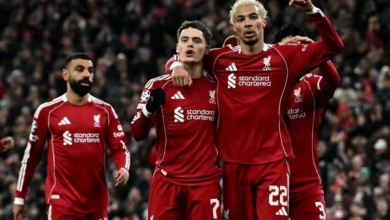Bastian Schweinsteiger says defender Man City sold for just £12m is one of the best he’s ever seen
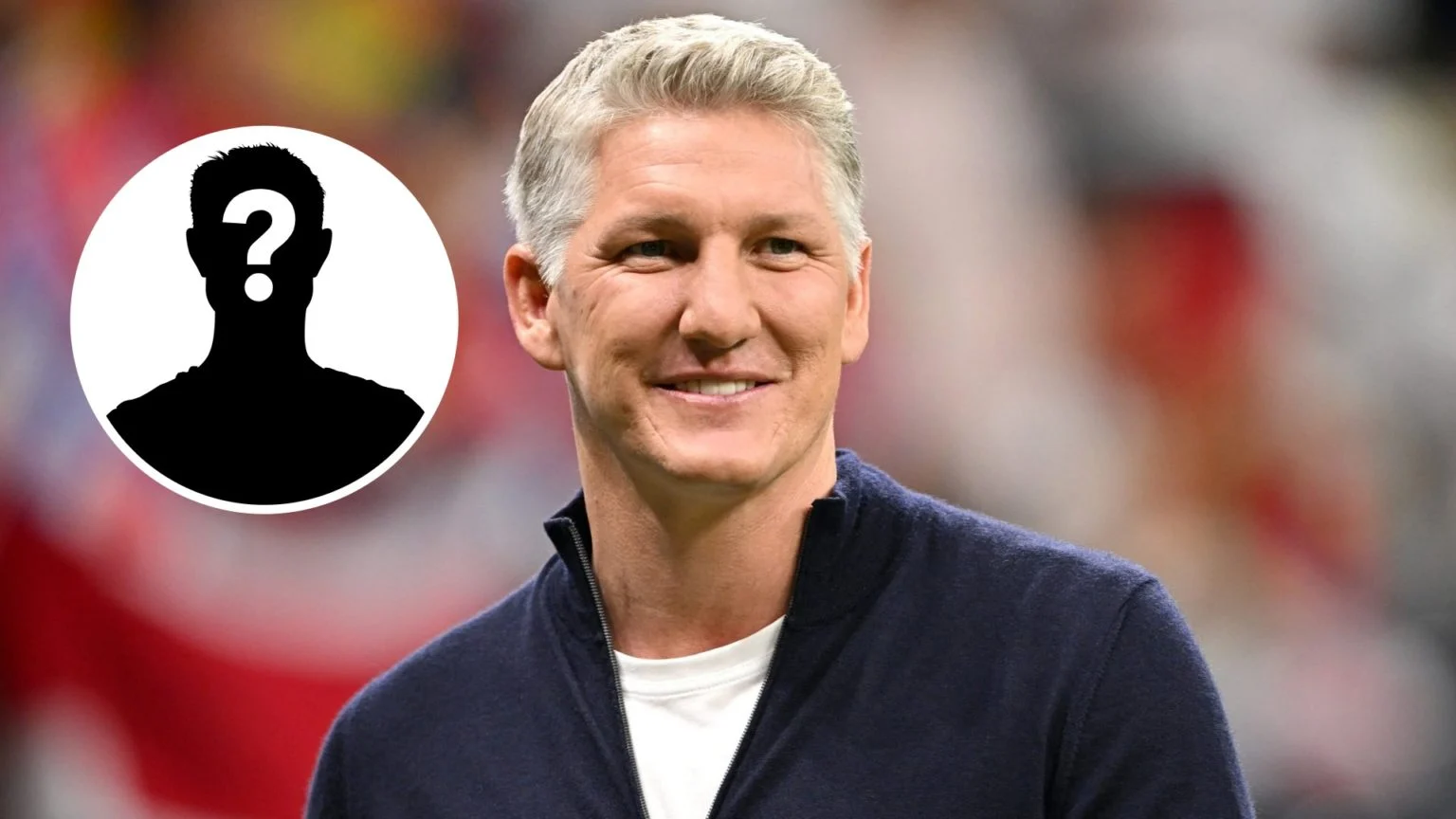
In the ever-evolving landscape of football, certain players leave an indelible mark on the sport. Their careers become reference points for excellence, their achievements setting benchmarks for future generations. This week, as the Champions League semi-finals unfold, one such player—Bastian Schweinsteiger—offered insights that have sparked debates across the footballing world. From his admiration for Jerome Boateng to his bold claims about Kevin De Bruyne, Schweinsteiger’s comments provide a fascinating glimpse into how elite players view their peers and their own legacies.
Schweinsteiger’s Ultimate XI: A Nod to Jerome Boateng
As the Champions League semi-finals captivate football fans worldwide, Bastian Schweinsteiger—a tournament winner in 2013 with Bayern Munich—was asked to compile his ultimate eleven consisting only of former teammates. For followers of European football, this presented an intriguing proposition: whose careers would the 40-year-old German midfielder deem worthy of inclusion in his star-studded lineup?
Unsurprisingly, Schweinsteiger’s selection heavily favored players from his glory days at Bayern Munich, the club where he enjoyed his most successful period. In what many consider a nostalgic nod to Bayern’s dominant era, he selected a central defensive partnership of Holger Badstuber and Jerome Boateng—the latter being particularly noteworthy given his connection to Manchester City.
“When you talk about defenders who could do it all—read the game, pass like a midfielder, and dominate physically—Jerome Boateng stands among the very best I’ve played with,” Schweinsteiger remarked during his selection process. “People forget how complete he was during Bayern’s peak years.”
This praise for Boateng might raise eyebrows among Manchester City supporters, who may recall the defender’s brief and relatively unremarkable stint at the Etihad Stadium. Yet Schweinsteiger’s selection highlights an important aspect of football careers: timing, environment, and coaching can dramatically transform a player’s trajectory.
Jerome Boateng: The Manchester City Misfit Who Became a Bayern Munich Legend
Jerome Boateng’s journey to footballing greatness contains a chapter that Manchester City might prefer to forget. In the summer of 2010, the Sky Blues secured the German defender’s signature from Hamburger SV for £10.5 million. The transfer represented City’s growing ambition under their new ownership, with Boateng viewed as a versatile defensive talent capable of operating at both center-back and right-back.
However, Boateng’s City career was problematic from the outset. Before he could make his Premier League debut, he suffered a significant setback during international duty with Germany. In a friendly against Denmark, the defender tore a tendon in his left knee—an injury that would delay his integration into Roberto Mancini’s squad and set a precedent for a difficult season ahead.
Throughout the 2010/11 campaign, Boateng would make just 24 appearances for Manchester City across all competitions. More concerning than the limited playing time was his struggle to establish himself in his preferred central defensive position. Mancini frequently deployed Boateng at right-back, a position that failed to showcase his best attributes.
“Playing at right-back was not what I wanted,” Boateng would later reveal in interviews. “I came to City to develop as a center-back, but the manager had different ideas. It was frustrating because I knew my best football would come from playing in the middle.”
By the season’s conclusion, the relationship between club and player had deteriorated significantly. Boateng made no secret of his desire to leave Manchester, with Bayern Munich emerging as his preferred destination. The German defender believed a return to his homeland would not only provide greater playing opportunities in his favored position but would also enhance his prospects of becoming a regular for the German national team.
Manchester City ultimately sanctioned Boateng’s departure in the summer of 2011, accepting a £12 million (€14 million) offer from Bayern Munich. While this represented a modest profit on their initial investment, the subsequent development of Boateng’s career would suggest that City had parted with a diamond they had failed to polish.
At Bayern Munich, Boateng underwent a remarkable transformation. Under the guidance of coaches like Jupp Heynckes and later Pep Guardiola, he evolved into one of the world’s premier center-backs. His reading of the game improved dramatically, his physical dominance became more consistent, and perhaps most impressively, his distribution from the back reached levels that few defenders in world football could match.
During his decade at Bayern Munich, Boateng accumulated an enviable collection of silverware, including nine Bundesliga titles, five DFB-Pokal trophies, and two UEFA Champions League victories. He also achieved international glory, playing a crucial role in Germany’s 2014 World Cup triumph. The player whom Manchester City had deemed expendable had become one of the defining defenders of his generation.
Schweinsteiger’s inclusion of Boateng in his all-time XI validates this trajectory. Having witnessed Boateng’s development firsthand at Bayern Munich, the midfielder appreciates qualities that perhaps weren’t fully evident during the defender’s brief spell in Manchester.
“What Jerome accomplished after leaving City shows his true character,” Schweinsteiger noted. “He took that experience, learned from it, and transformed himself into a complete defender. His passing range from defense changed how Bayern played—he wasn’t just stopping attacks; he was starting them with passes that most midfielders would be proud of.”
Despite Boateng’s subsequent success, it would be unfair to label his sale as a significant error on Manchester City’s part. Football history is replete with examples of players who needed a change of environment to realize their potential. Boateng himself has acknowledged that his development at Bayern benefited enormously from the stability, tactical framework, and competitive demands of the club.
Moreover, Manchester City’s defensive evolution continued without Boateng. The club would later secure the services of Vincent Kompany, who became a cornerstone of their defensive unit and one of the Premier League’s greatest center-backs. Nicolas Otamendi, Aymeric Laporte, Ruben Dias, and others would follow, each contributing to City’s transformation into a dominant force in English football.
The De Bruyne Debate: Schweinsteiger’s Bold Claim
While Schweinsteiger’s praise for Jerome Boateng might be seen as a respectful acknowledgment of a former teammate’s excellence, his recent comments about Kevin De Bruyne have stirred considerably more controversy.
When asked in an interview with Daily Mail Sport whether he considered himself superior to Manchester City’s Belgian maestro, Schweinsteiger’s response was unequivocal: he believes he was the better player.
“I respect Kevin tremendously—he’s arguably the best midfielder in the world right now,” Schweinsteiger began, before adding the qualifier that would reverberate through football discourse. “But if you’re asking me to compare our careers, our technical abilities, our influence on games at our peak? Yes, I believe I was the more complete midfielder.”
This statement represents a bold claim even for a player of Schweinsteiger’s considerable pedigree. Kevin De Bruyne has established himself as not merely one of the premier midfielders of his generation but as a player who has redefined what’s possible from the position. His vision, passing range, goal-scoring capacity, and leadership qualities have made him the centerpiece of Pep Guardiola’s revolutionary Manchester City team.
Wayne Rooney—a Manchester United legend not prone to lavishing praise on City players—recently claimed that De Bruyne has surpassed Liverpool icon Steven Gerrard in the hierarchy of Premier League greats. Rooney went so far as to include De Bruyne in his all-time Premier League XI alongside Roy Keane, despite having played with midfield luminaries such as Paul Scholes, Michael Carrick, and indeed, Bastian Schweinsteiger himself during the German’s brief spell at Old Trafford.
Bernardo Silva, De Bruyne’s teammate at Manchester City, has gone even further, identifying the Belgian as the greatest player ever to represent the club—high praise considering the likes of Sergio Agüero, David Silva, and Yaya Touré have all worn the sky blue shirt with distinction.
De Bruyne’s statistical output certainly supports these plaudits. He recently joined Lionel Messi as only the second player to register 250 goal involvements under Pep Guardiola’s management—a remarkable achievement that places him in the most rarefied company. His six Premier League titles, FA Cup success, and Champions League triumph form a trophy cabinet that continues to expand as Manchester City’s dominance extends into the 2024/25 season.
Schweinsteiger’s assertion of superiority draws immediate comparison between two midfielders who, despite occupying nominally similar positions, approached the game in distinct ways. At his peak with Bayern Munich and Germany, Schweinsteiger operated as a controlling midfielder whose influence stemmed from his tactical intelligence, passing precision, and ability to dictate tempo. His transition from a wide midfielder to a central orchestrator under Louis van Gaal at Bayern Munich showcased his adaptability and football intelligence.
The German’s trophy haul is undeniably impressive: a World Cup with Germany, a Champions League title with Bayern, eight Bundesliga championships, and seven DFB-Pokal victories constitute a career that most players can only dream of. His influence on matches, particularly during Bayern’s treble-winning 2012/13 campaign and Germany’s 2014 World Cup triumph, demonstrated his capacity to perform at the highest level on the biggest stages.
De Bruyne, conversely, has evolved into a more dynamic, direct attacking force. While equally capable of controlling matches through possession, the Belgian’s primary weapons are his devastating through-balls, crosses of surgical precision, and powerful strikes from distance. Under Guardiola’s guidance, he has become the perfect modern midfielder—capable of operating in tight spaces, exploiting transitions, and delivering decisive contributions in the final third.
A Statistical and Stylistic Comparison
When comparing players across different eras and teams, statistical analysis provides a valuable, if imperfect, framework. Schweinsteiger and De Bruyne, despite both being classified as midfielders, performed different roles that reflected both their individual strengths and the tactical demands of their teams.
Throughout his career, Schweinsteiger accumulated approximately 70 goals and 100 assists across all competitions for his clubs. His influence, however, extended far beyond these measurable contributions. His ability to control matches through intelligent positioning, precise passing, and defensive awareness made him a cornerstone of both Bayern Munich and Germany during their most successful periods.
De Bruyne’s statistical production has been considerably more prolific. With over 100 goals and 160 assists for Manchester City alone, his direct contribution to goals exceeds what Schweinsteiger achieved throughout his entire club career. The Belgian has registered 20 or more assists in a single season multiple times—a feat that underscores his exceptional creative output.
However, raw numbers don’t capture the full picture. Schweinsteiger played in deeper positions for significant portions of his career, with responsibilities that prioritized build-up play and defensive stability over final-third creativity. His excellence manifested in controlling matches rather than dominating highlight reels.
The tactical evolution of football between Schweinsteiger’s prime years and De Bruyne’s current period also complicates direct comparison. The increasing emphasis on pressing and transitions in modern football has changed how midfielders operate. De Bruyne benefits from playing in a Guardiola system specifically designed to create space and opportunities for his unique skill set.
Perhaps the most significant differentiation comes in their respective roles within their teams. Schweinsteiger functioned as the metronome—setting the tempo, providing balance, and serving as the link between defense and attack. De Bruyne, while capable of dictating play, primarily operates as the creator and finisher—the player teammates look to for the decisive pass or shot.
Legacy and Leadership: Beyond Statistics
Both Schweinsteiger and De Bruyne transcend their statistical contributions through their leadership qualities and influence on teammates. Schweinsteiger’s nickname “Fußballgott” (Football God) among Bayern supporters speaks to his iconic status at the club. His calm presence in midfield provided stability during crucial moments, while his tactical intelligence allowed him to execute coaches’ instructions with precision.
De Bruyne has similarly grown into a leadership role at Manchester City. As one of Guardiola’s on-field generals, he communicates the manager’s tactical adjustments and drives standards through his own relentless work ethic. Former teammate Ilkay Gündogan has described De Bruyne as “a coach on the pitch”—high praise that echoes sentiments once expressed about Schweinsteiger.
Both players have demonstrated remarkable technical ability throughout their careers. Schweinsteiger’s two-footed technique allowed him to control matches with passes from either foot, while his spatial awareness created time even under pressure. De Bruyne possesses perhaps the most complete passing range in contemporary football, capable of delivering everything from delicate through-balls to cross-field switches with pinpoint accuracy.
The longevity factor also warrants consideration. Schweinsteiger maintained elite performance levels for over a decade, adapting his game as physical limitations emerged in his later years. De Bruyne, now in his early thirties, continues to produce exceptional performances despite navigating increasingly frequent injury concerns. How the Belgian’s career concludes—whether with a gradual decline or an abrupt drop-off—will influence how his legacy compares to Schweinsteiger’s.
The Verdict: An Impossible Comparison?
When evaluating Schweinsteiger’s claim of superiority over De Bruyne, context becomes crucial. The German midfielder experienced his prime years during a period when Bayern Munich dominated German football and competed consistently at the highest European level. His World Cup victory with Germany in 2014—particularly his heroic performance in the final against Argentina despite suffering a facial injury—represents a pinnacle that De Bruyne has yet to reach in international competition.
Conversely, De Bruyne has been the creative fulcrum of arguably the greatest team in Premier League history. Manchester City’s domestic dominance under Guardiola, culminating in their historic treble in the 2022/23 season, has redefined expectations in English football. The Belgian’s central role in this achievement cannot be overstated.
Perhaps the most reasonable conclusion is that Schweinsteiger and De Bruyne represent different interpretations of midfield excellence. The German exemplified control, tactical discipline, and consistency across all phases of play. The Belgian embodies creative genius, technical brilliance, and match-winning capability in the final third.
Theo Walcott, former Arsenal and England winger, recently identified De Bruyne as the player who will “usher in the next stage” at Manchester City—a testament to the Belgian’s continued importance despite speculation about his future involvement in projects like the FIFA Club World Cup. This ongoing influence at the highest level suggests that De Bruyne’s full legacy remains unwritten.
Meanwhile, Schweinsteiger’s post-playing career as a respected pundit and analyst has reinforced his status as one of football’s most thoughtful practitioners. His willingness to make bold comparisons—whether rating former teammates like Boateng or assessing his own standing against contemporaries like De Bruyne—reflects the confidence that defined his playing style.
Conclusion: Champions Recognizing Champions
The beauty of football lies partly in these subjective debates about players across different eras and teams. Schweinsteiger’s praise for Jerome Boateng acknowledges how player development rarely follows a linear path—sometimes requiring a change of environment to fully blossom. Boateng’s transformation from Manchester City misfit to Bayern Munich and Germany stalwart serves as a reminder that football careers are shaped by countless variables beyond individual talent.
Similarly, Schweinsteiger’s assertion regarding Kevin De Bruyne demonstrates the self-belief that characterizes elite athletes. Having competed and succeeded at the highest level, the German midfielder possesses a unique perspective on what constitutes greatness in his position.
As football continues to evolve, these conversations provide valuable connections between different eras of the sport. Whether or not observers agree with Schweinsteiger’s assessment of his own abilities relative to De Bruyne’s, the discussion itself enriches our understanding of midfield play at its highest level.
What remains undisputed is that both Bastian Schweinsteiger and Kevin De Bruyne have earned their places in football’s pantheon of greats. Their contrasting styles, achievements, and approaches to the game demonstrate the diverse pathways to excellence available in the beautiful game. As De Bruyne continues to add chapters to his Manchester City legacy and Schweinsteiger reflects on his completed career, football enthusiasts worldwide are the beneficiaries of their exceptional talents.
In a sport increasingly dominated by statistics and analytics, Schweinsteiger’s comments remind us that those who have played the game at its highest level often evaluate excellence through a more nuanced lens—one that values intangible qualities alongside measurable outputs. Whether judging Jerome Boateng’s development after leaving Manchester City or comparing his own career to Kevin De Bruyne’s ongoing achievements, Schweinsteiger speaks from a position of authority earned through years of excellence on football’s grandest stages.






